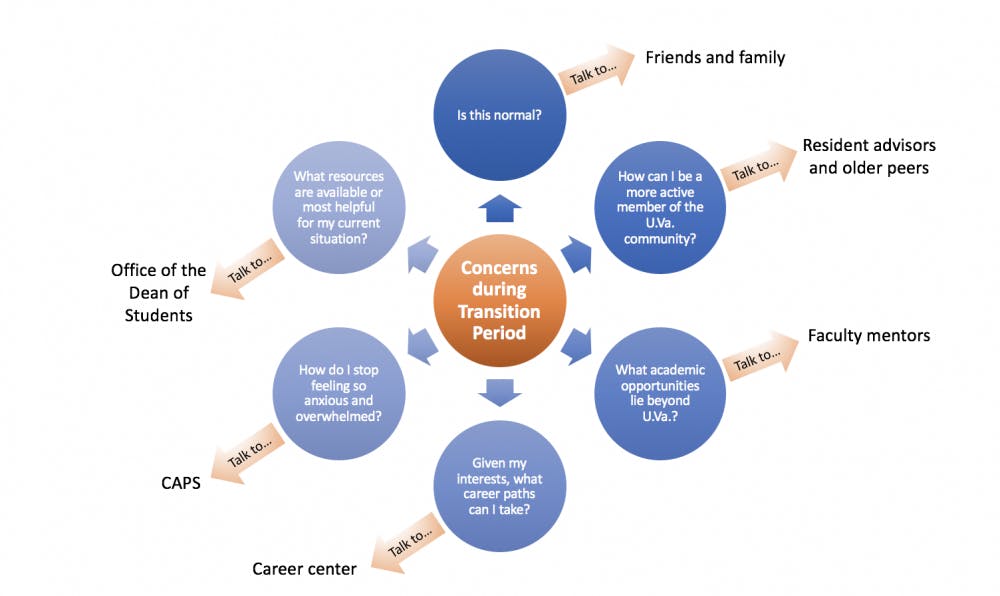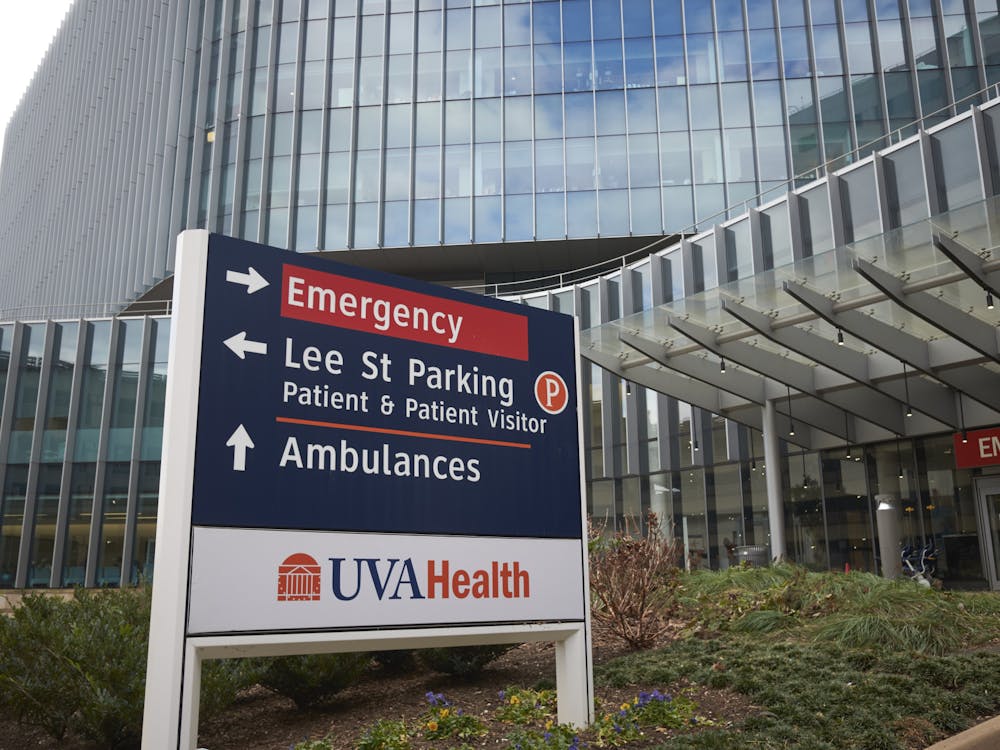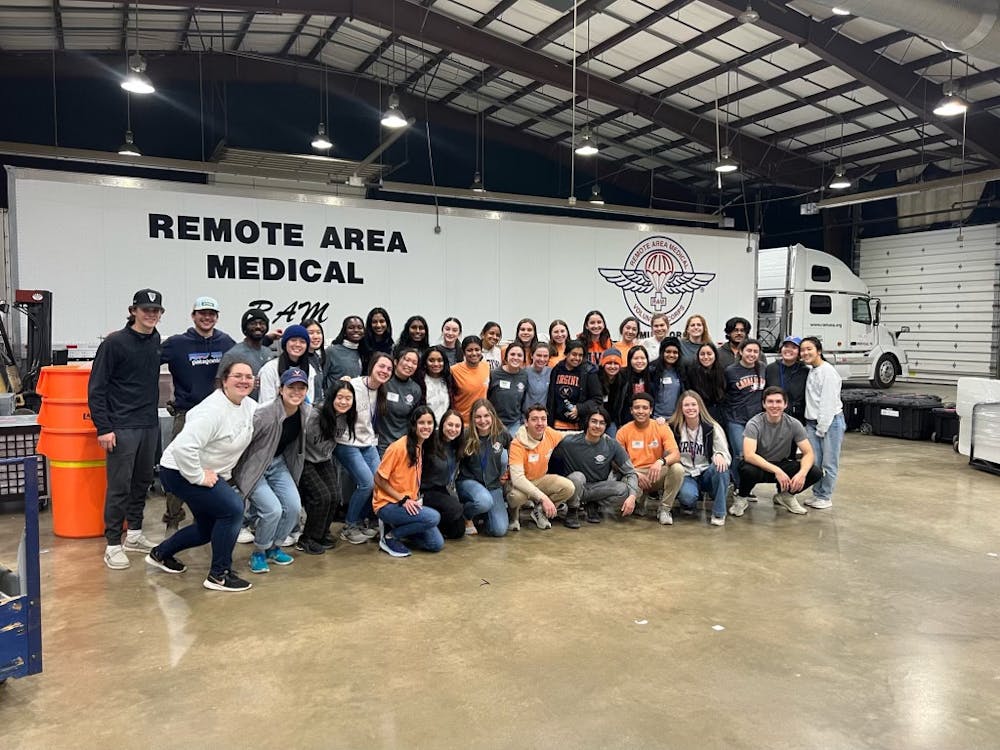For many students, winter break presents an opportunity to relax and recuperate from the fall semester. As it comes to an end, however, students may face both feelings of excitement and anxiety at the thought of diving headfirst into classwork and extracurriculars. In order to reacclimate students to the University's fast pace, a number of specialists — from Counseling and Psychological Services to the Career Center — offer resources to make the most of the spring semester both mentally and academically.
“One of the challenging parts of being a young adult is the navigation between going back to a system you’ve outgrown at home and coming back to a system that sometimes feels like more than you can handle,” said Tim Davis, executive director of Student Resilience and Leadership Development at the Career Center. “The ebb and flow of that can be exhausting.”
First-year Engineering student Pascale Starosta described fears about classes but expressed excitement about returning to the University's social environment.
“I’m worried about my classes being harder than last semester’s and about having to keep up with homework again,” Starosta said. “But I’m taking classes that I like more this semester and am looking forward to being around my friends all the time.”
Assoc. Dean of Students Aaron Laushway said that a student’s plans for the semester can bring about different sources of excitement and apprehension depending on their year. For example, first-year students may look forward to becoming more engaged in their communities at the University by joining clubs and organizations but may feel some degree of homesickness as a result of parting from friends and family at home, according to Laushway and Assoc. Dean of Students Laurie Casteen.
However, Laushway pointed out that there are numerous resources to help first-years through the transition period.
“Within the first-year community, we have very talented RAs, and they are very good at helping students through transitions. That’s a tremendously important assurance,” Laushway said. “Many young men and women will also be going through recruitment — another opportunity to re-adjust to university life.”
Laushway recommended that first-year students get to know their association dean as he or she can discuss unique opportunities available at the University.
For students planning to declare a major or find an internship, conversations with families and University staff about classes they have enjoyed can help with identifying a potential major or area that they think might interest them. Laushway said the Career Center and its satellite office in Newcomb Hall are ideal places to explore interests and professional possibilities.
For fourth-years, CAPS Director Nicole Ruzek said that graduation often carries with it a unique mix of feelings.
“Fourth years are often facing a whole different set of feelings. This is their last semester, which can bring up feelings of happiness about accomplishing their goal to get a degree,” Ruzek said in an email to The Cavalier Daily. “However, graduation can also bring up feelings of loss and fear about leaving the University and launching into life post-graduation. Some students will be happy to leave academic life behind, but others may feel nervous about taking this step.”
Laushway encouraged fourth-years to make use of social events and to develop lasting friendships as a means of handling some of these feelings of loss and apprehension.
“This last semester is a great opportunity for fourth-years to reacquaint with people from their first, second, and third-year experiences,” Laushway said.
First-year College student Ashley Ewing likewise described how social activities can help ease the transition back to the University for all students — not just fourth-years — by mentioning the many organizations that host social events at the beginning of the semester.
“I’m really excited for Chi Alpha’s First Friday because I really like swing dancing,” Ewing said. “It’s an event with a bunch of swing dancing on the first Friday of the semester.”
For students struggling with the return to Grounds, Davis said the HELP Line that is run through Madison House can be an important resource. Run and operated on a volunteer basis by students at the University, HELP Line is a free, anonymous, confidential and 24/7 hotline for any problem.
University leaders also said talking with people like resident advisors and Peer Health Educators can also help with feelings of apprehension, loneliness and sadness.
Ruzek further emphasizes the importance of sharing, not comparing, personal emotions.
“Students should be careful not to compare their experience to how others are feeling or handling things,” Ruzek said. “Social comparison is often a source of added distress and many times is not based in reality. People can look one way externally but feel very differently on the inside.”
In terms of managing academic stress, Katie Densberger, director of the Dathel and John Georges Student Center, noted the importance of making small but manageable goals.
“If you’re looking to make a big improvements in your health or grades, it can still be helpful to focus on just one thing at a time — just make it one really important thing, like getting adequate sleep or always attending every class,” Densberger said in an email. “Those sorts of habits are really central to the rest of your activities, and will help to make it more possible to achieve your other goals.”
Casteen encourages students to make effective use of daytime hours for studying and other larger projects and to save evening hours for less demanding tasks.
In addition, Ruzek notes the importance of self-care — including exercise, healthy eating and getting sufficient sleep — in maintaining focus.





